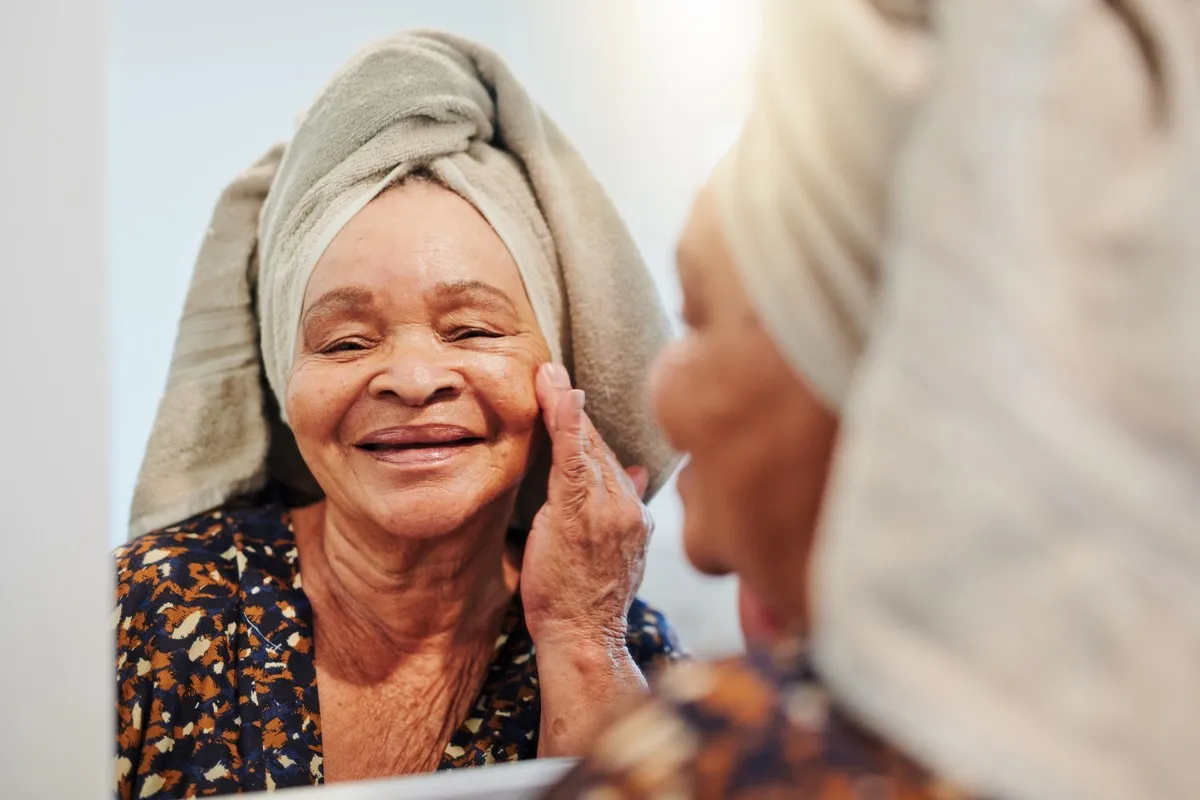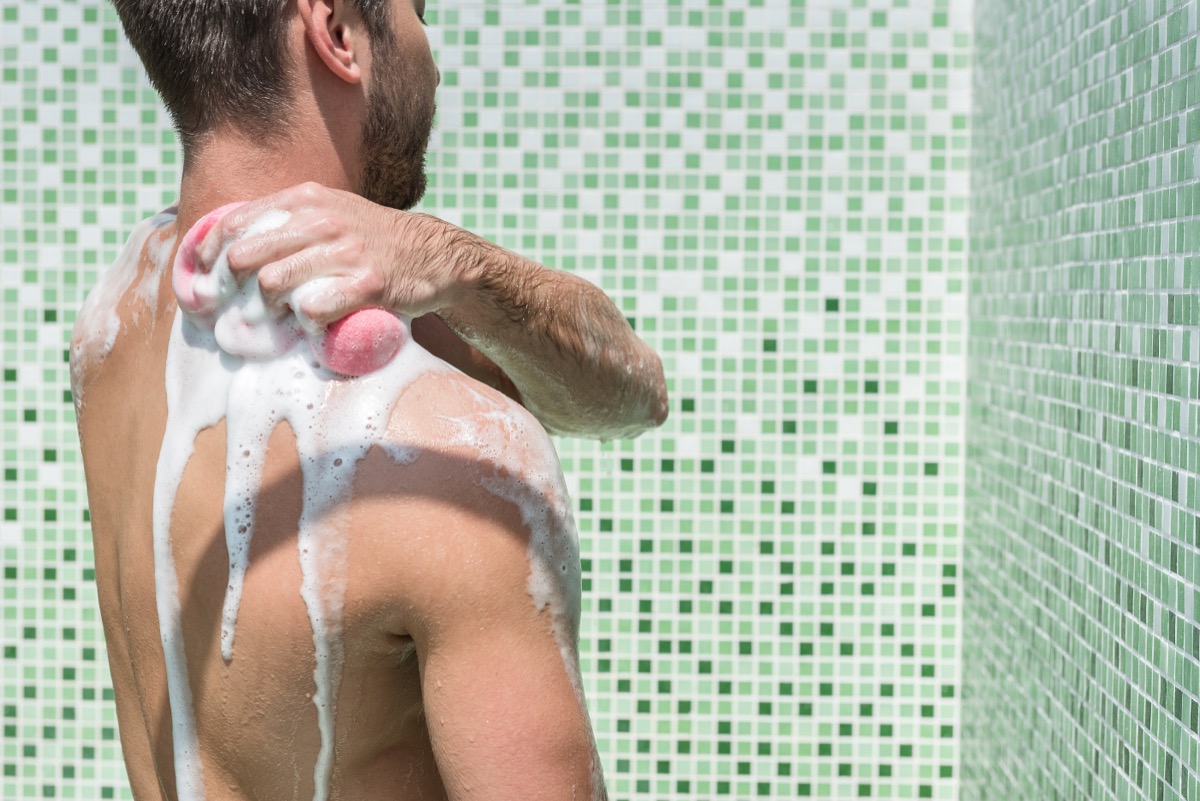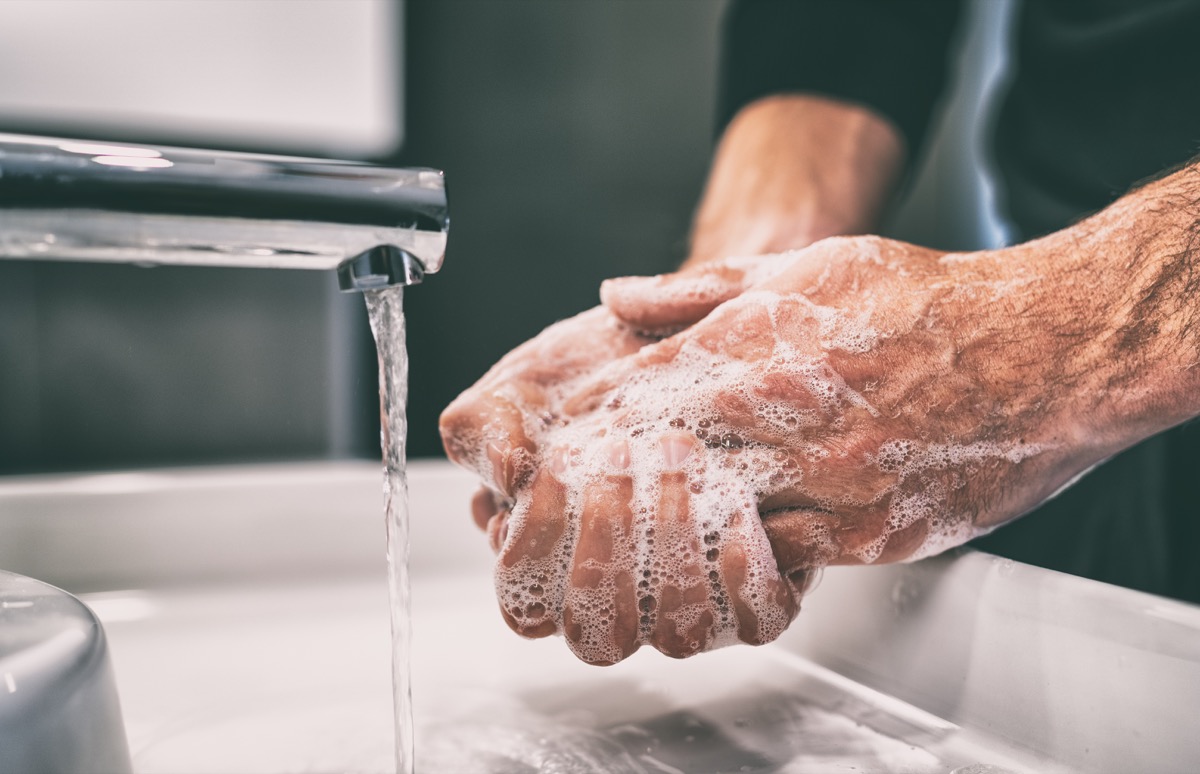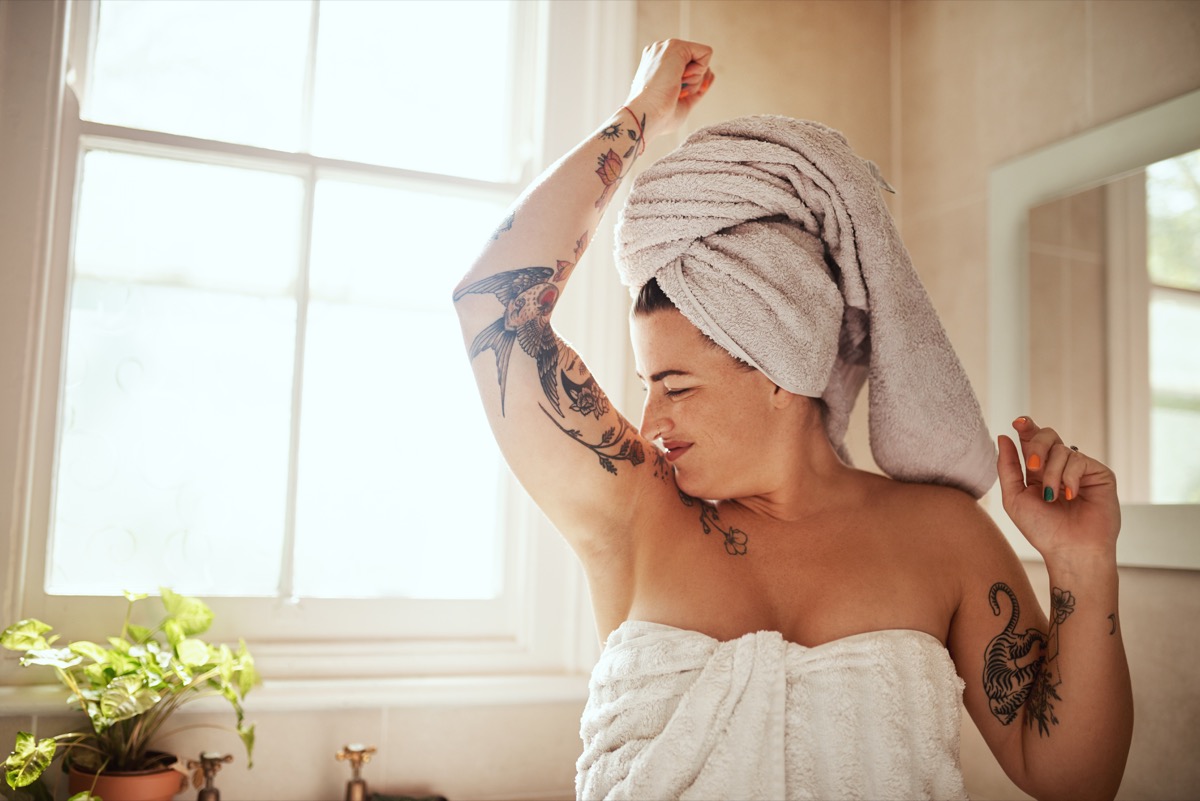Doctor Who Hasn’t Showered in Years Thinks Others Should Join Him

If taking a shower is a regular part of your morning (or nighttime!) routine, then the idea of skipping it for a few days—let alone a few years—probably sends a shudder down your spine. But that’s exactly what James Hamblin, MD, a physician and public health policy lecturer, says we should all consider.
The author of Clean: The New Science of Skin, published in July 2020, Hamblin told NPR in an interview that same year that he hadn’t showered in five years. Before you question his hygiene or dismiss him as a quack, however, it’s worth finding out exactly why he thinks most of us are showering too much. Read on to discover Hamblin’s reasoning, and whether your health might benefit from taking a break from your daily shower habit.
READ THIS NEXT: What Happens When You Don’t Wash Your Sheets Every Week, Doctors Say.
Our skin microbiome has a huge impact on our health.

Before we dive into Hamblin’s personal hygiene habits, let’s talk about our skin microbiome. You may have heard of “the microbiome” in reference to gut health: It’s the colony of microorganisms, including fungi, bacteria, and viruses, that inhabit a given environment.
“In humans, the term is often used to describe the microorganisms that live in or on a particular part of the body, such as the skin or gastrointestinal tract,” the National Human Genome Research Institute explains. “These groups of microorganisms are dynamic and change in response to a host of environmental factors, such as exercise, diet, medication and other exposures.”
Just like our gut, our skin hosts its own microbiome, and it has a big effect on our overall health. “A healthy microbiome keeps unhealthy bacteria and fungi away,” dermatologist Leslie Baumann, MD, told Everyday Health. “There is some evidence … that imbalances in the skin microbiota can result in cellular inflammation, which has been linked to many chronic diseases.” Baumann said this includes Type 2 diabetes, as well as common skin complaints like eczema, rosacea, and psoriasis.
Showering isn’t necessary, Hamblin insists.

So how does this relate to Hamblin’s showering, or rather, non-showering, habits? For one thing, showering changes our skin’s microbiome, which can throw it out of balance.
“People are being more conscious about things like antibiotic overuse because they don’t want to potentially disrupt the gut microbiome,” he told NPR, and explained that he believes a similar shift might be on the horizon in regards to our skin. “If things like acne, eczema, and psoriasis are the result of an interplay between your immune system and the microbes on your skin, it is, indeed, scientifically a very promising and cool hypothesis to think that we can shift that microbiome and help people through their flares or outbreaks.”
In an essay for The Atlantic that went viral in 2016, Hamblin explained that while he was interviewing experts for a series on the microbiome, he became curious about the idea of skipping showers. “In the course of … thinking more about skin microbes, I started using less soap, and less shampoo, and less deodorant, and showering less. I went from every day to every other day to every three. And now I’ve pretty much stopped altogether,” he wrote.
The big question, however—and the one Hamblin told NPR he’s tired of being asked, is whether or not he stinks. (Fair enough!)
For more health content sent directly to your inbox, sign up for our daily newsletter.
Basic hygiene is still important, he says.

To address the question of smell, Hamblin admitted in the Atlantic article that when he first stopped showering, he was indeed rather overripe. “I was an oily, smelly beast,” he wrote.
“The odor of bodies is the product of bacteria that live on our skin and feed off of the oily secretions from the sweat and sebaceous glands at the base of our hair follicles,” Hamblin continued, going on to explain that showering wipes out those ecosystems. When they’re out of balance, we tend to produce the types of microbes that smell bad.
“But after a while … your ecosystem reaches a steady state, and you stop smelling bad,” he wrote. “I mean, you don’t smell like rosewater or Axe Body Spray, but you don’t smell like B.O., either. You just smell like a person.”
More important is the issue of hygiene, which Hamblin stressed is separate from what he called “cleansing rituals.”
“‘Hygiene’ is the more scientific or public health term, where you’re really talking about disease avoidance or disease prevention behaviors,” he told NPR. “Removal of mucus, vomit, blood, feces… any behavior that signals to people ‘I am thoughtful about not transmitting diseases to you, and I’m a safe person to be around.’ That would include hand-washing, brushing your teeth, cleaning of open wounds, even mask-wearing. I don’t think any of that stuff is due for questioning.”
Shower habits vary around the world.

About two-thirds of people in the U.S. take a shower every day, according to Harvard Health. However, they report that more than 80 percent of Australians shower daily—and that in China, about 50 percent of residents say they only bathe twice a week.
“A lot of the [things we do] are class and wealth signifiers—like combing your hair or whitening your teeth or wearing deodorant—which actually have nothing to do with disease avoidance or disease transmission. They’re really much more of a personal or cultural preference,” Hamblin told NPR. He said these habits are worth reconsidering, not only for the sake of our collective health, but because they’re expensive, time-consuming, and have a detrimental impact on our environment.
“We’re spending a lot of money … on products and practices in this enormous industry-complex of self-care, skin care, hygiene and cosmetics—which is barely regulated, which is a huge and important part of people’s daily lives, which people worry a lot about, which people get a lot of joy from, which people bond over, which people judge, and which causes a lot environmental impacts in terms of water and plastic,” he said.
If you love showering, however, it seems that Hamblin doesn’t want to rain on your parade. When asked how he feels about the hot-button issue of whether or not to wash your legs in the shower, he told NPR that while it’s not hygienically necessary, “If it brings you value, then it’s absolutely worth doing.”